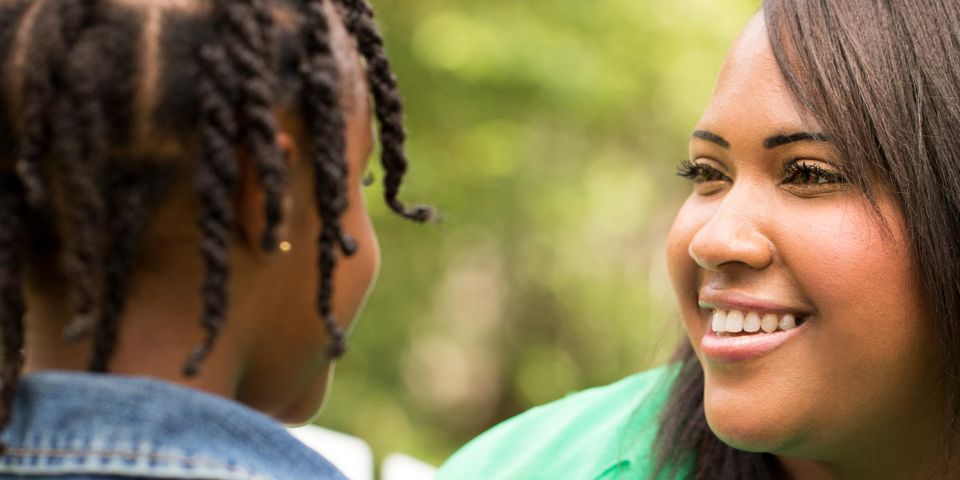How to Talk With a Preteen About Her First Period

As a parent, it can feel a little awkward talking about menstrual cycles with your daughter. However, OB-GYN professionals recommend starting these conversations early to prepare her for what’s to come. If you don’t know how or where to start, use this guide for a nudge in the right direction.
When to Start the Conversation
It’s normal for young kids to have questions about menstruation, especially if their friends have started or they heard about it at school. They might not know exactly what they’re asking about, but usually kids begin hearing the words tampon and period between the ages of 4 and 7. Take advantage of their curiosity to start peppering in information.
What She Needs to Know
When Most Girls Start Their Period
Most girls will get their first period between the ages of 8 and 15, with the average of 12 years old. Usually, it comes about two years after her breasts start to develop.
Why Periods Happen
When girls enter puberty, their ovaries start to release estrogen and progesterone hormones, which cause the lining of the uterus to thicken in preparation for a fertilized egg. During this time, an egg in one of the ovaries starts to mature, and usually at day 14 in this 28-day cycle, the egg will travel through the Fallopian tubes to the uterus. If the egg is not fertilized by a sperm during this time, the hormones will drop, and the egg and thickened lining will be shed through the vagina.
Frequency & Length of Periods
On average, periods happen at least once a month and last for about five days. Although it takes two to three years for periods to occur regularly, tracking her cycle will help her learn to expect when it’s about to happen.
Feminine Hygiene Products
 Today, girls can choose from a range of feminine products. Speak with your OB-GYN about her options and how to use them. Stock up on several different types, such as pads, panty liners, and tampons, so she can test each one and determine what makes her most comfortable.
Today, girls can choose from a range of feminine products. Speak with your OB-GYN about her options and how to use them. Stock up on several different types, such as pads, panty liners, and tampons, so she can test each one and determine what makes her most comfortable.
PMS
Premenstrual syndrome is a condition many girls face. It comes with temporary emotional and physical symptoms, such as abdomen and lower-back cramps, breast tenderness, moodiness, anxiety, bloating, acne, headaches, nausea, and diarrhea. These usually happen before or during a period. Explain how she can relieve discomfort by taking a warm bath, using a heating pad, or taking over-the-counter pain relievers.
If your daughter is dealing with heavy or abnormal menstrual periods, bring her to Advanced OB-GYN Services to check for any underlying issues. Dr. Hazan has been providing gynecology and obstetrics treatment to Bridgeton and St. Peters, MO, for over 32 years. He takes a personal interest in every patient and makes the time to answer all of your questions. Schedule an appointment at either office today by calling (314) 291-2140 for Bridgeton or (636) 928-1800 for St. Peters. Visit the website to learn more about the practice’s services.
About the Business
(52 reviews)
Have a question? Ask the experts!
Send your question

